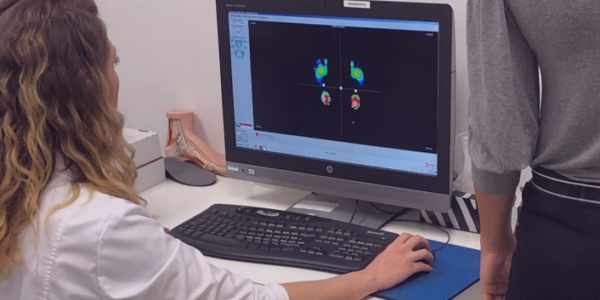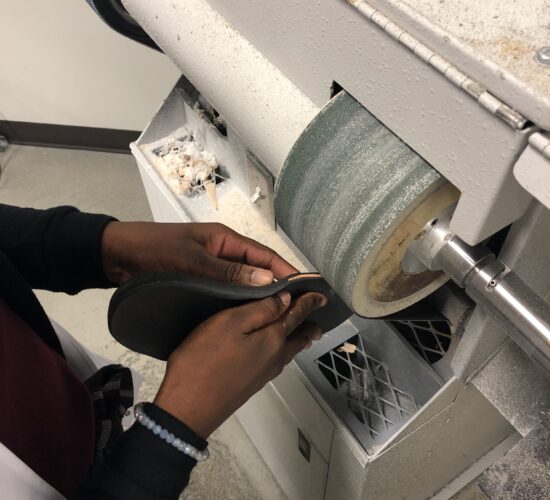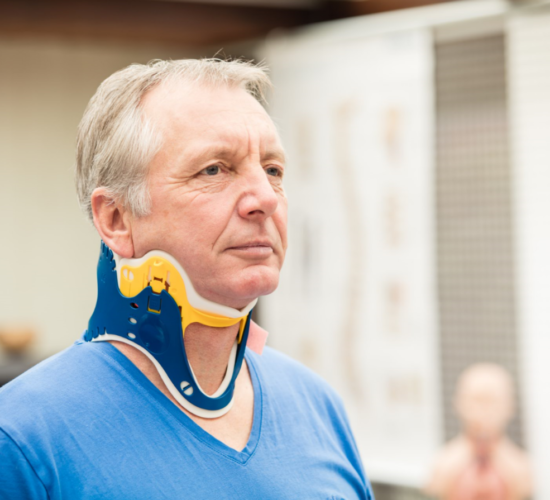First of all, can I see an orthotist-prosthetist without a prescription?
Absolutely. Anyone can consult an orthotist-prosthetist without a prescription. The orthotist-prosthetist has the expertise to make recommendations to their patients regarding the biomechanical parameters identified during a precise evaluation.
The orthotist-prosthetist is a professional who has the skill to assess the biomechanics of the body and recommend, manufacture or adjust all types of orthopedic devices such as orthotics and prostheses.
Its skills can be summarized as follows *:
- Interpret medical prescriptions according to the established diagnosis and recommendations;
- Welcome the patient and perform a complete biomechanical assessment to detect any orthotic problems;
- Establish the client’s orthotic needs;
- If necessary, take measurements of the limb to be fitted;
- Draw up a treatment plan in agreement with the client;
- Perform performance monitoring to determine the adequacy of treatment and make the necessary adjustments;
- Educate the customer on the device, its maintenance, warranty, and use.
* Source : https://orthese.com/la-profession/
Is There A Difference Between An Orthotist And A Prosthetist?
The orthotist-prosthetist represents one and the same profession. However, there is indeed a difference between both practices that this professional can perform. To better distinguish these same practices, it is essential to understand what orthotics and prosthetics are, more specifically.
- The orthosis is designed to support, help, or immobilize a limb, so as to control or correct a joint or functional problem. These can be foot orthotics, knee orthoses, or wrist or ankle orthoses.
- The prosthesis, for its part, is an orthopedic device specially designed to replace a limb, either completely or partially. They can be lower or upper limb prostheses or breast prostheses.
These two techniques, offered by the orthotist-prosthetist, cover a wide range of health and service needs. Although no prescription is necessary to consult the orthotist-prosthetist, they can recommend products or services, only if they have a medical prescription. It is therefore important to always first.
Moreover, be sure to consult a professional member of the Order of Professional Technologists of Quebec. This factor not only protects you but also protects the professional you are consulting!
When Should I Consider Consulting An Orthotist?
Several reasons for consultation may be relevant to a consultation. Some examples of daily pain or plantar pathologies where the assessment is often the first step towards a life on the move, without pain:
There are several reasons for consulting an orthotist. Here are some of them:
- Deformities (feet, knees, toes, lower limbs)
- Bunions (hallux valgus)
- Clubfoot
- Corns and calluses
- Uncomfortable pebble-like feeling in your shoe
- Pain or discomfort in the lower extremities
- Common sprains
- Painful first steps after a period of inactivity
- Burning sensation in the feet, toes, knees, or hips
- Regular and sudden numbness in the foot
The assessment allows for a comprehensive and comparative analysis of the foot structure, pressure points on the ground and biomechanical alignments. The distribution of the center of gravity in a static position or when walking is then identified. The imagery portrays the structure of the feet and the pressure levels that can affect performance and comfort.
When the assessment is completed, two scenarios are possible:
- Medical prescription: depending on the pathology observed, the orthotist recommends the product, tailor-made or prefabricated, best suited to the needs of your treatment plan.
- No medical prescription: the orthotist gives you the detailed report of your assessment and can, if necessary, refer it for consultation with the appropriate health professional (doctor, physiotherapist, etc.)
If the treatment plan recommends wearing any type of orthotic, molding, and measurement is done for the laboratory design of your custom orthotics.






